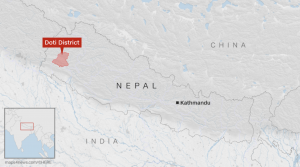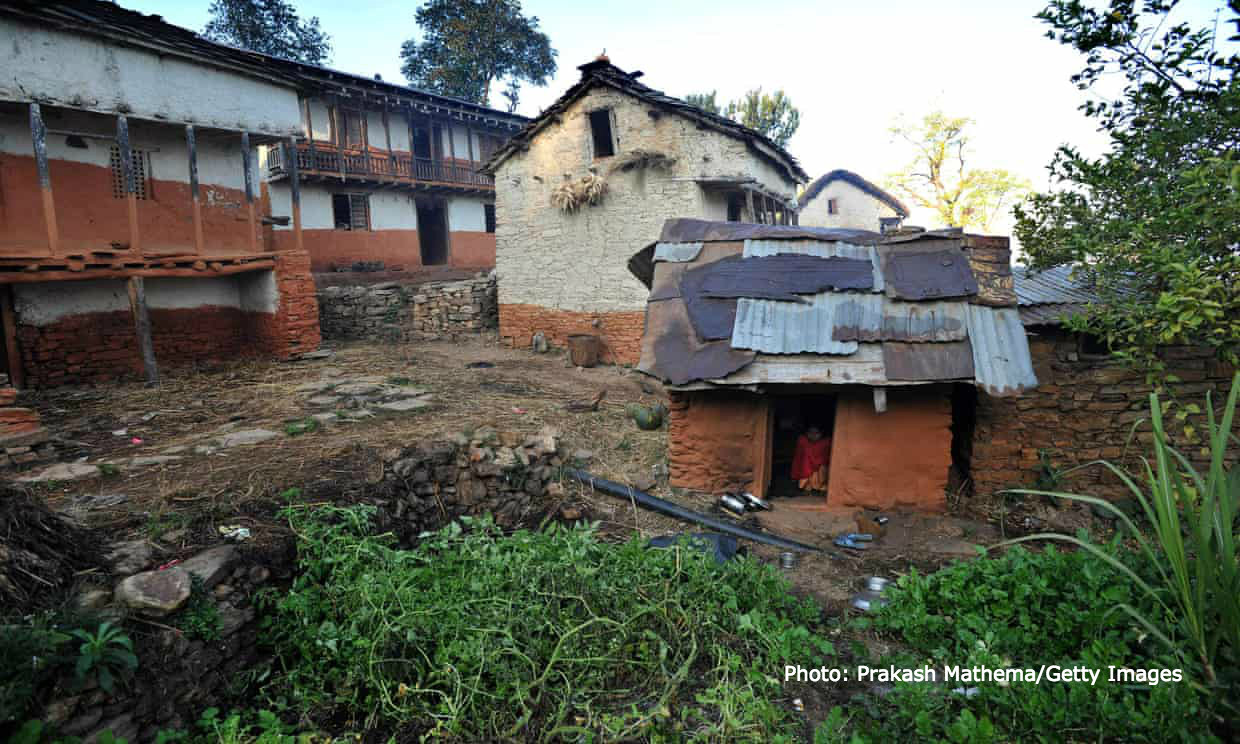Four people die in Nepal’s ‘menstruation hut’ tragedy
At least four people have lost their lives in January alone after two women were forced to live in ‘menstruation huts’ in two separate incidents in western Nepal.
Parbati Bogati, 21, died of smoke inhalation after she lit a fire to keep herself warm in the windowless hut she was banished to during her monthly cycle.
The incident took place in the hilly district of Doti where temperatures fall below zero degree Celsius in the winter.
Amba Bohara and her two sons had died in a similar shed in Bajura district only three weeks before.

Both of these incidents are results of ‘Chaupadi’, an ancient Hindu practice which sees women who have their periods or who have just given birth as impure or bringers of bad luck, hence isolating them in tiny huts – usually cattle sheds, with confined space and poor hygiene often next to animal dungs.
“Many fear bad things will happen if they stop; animals will become unwell or food contaminated if in direct contact with women and girls in their period,” said Mike Noyes, the head of humanitarian response from ActionAid UK.
The international charity ActionAid UK has been working closely with local women’s groups in Western Nepal for more than 10 years to raise awareness about the negative effects of forcing menstruating girls and women in isolated huts.
They have been able to establish 11 Chaupadi-free communities and more than 1,400 women have stopped carrying out this practice with the charity’s support.
Mr Moyes said: “We want women and girls to be empowered to say ‘my body is mine’ and not let anything, especially their periods, hold them back from fulfilling their potential.”
Under the current law anyone enforcing this practise can face a jail sentence of up to three months in prison and a £23 fine.
However, Mr Moyes said beliefs that staying at home during menstruation will displease the gods and bring misfortune is so strongly deep-rooted in the society that laws alone are not enough to free women from this stigma.
“Social beliefs are often deeply-engrained so even the knowledge that Chaupadi is illegal and fines will be enforced, or imprisonment will not deter families from continuing what they believe is a normal tradition.
“There is also deep-rooted belief that women and girls’ bodies are inferior and exist for others to exploit, comment on and control.”
He said supporting grassroots organisations and activists who work closely with entire communities is the best way to create sustainable change.
“Time is needed to explain to people that this practice is in fact a violation of basic human rights.”

